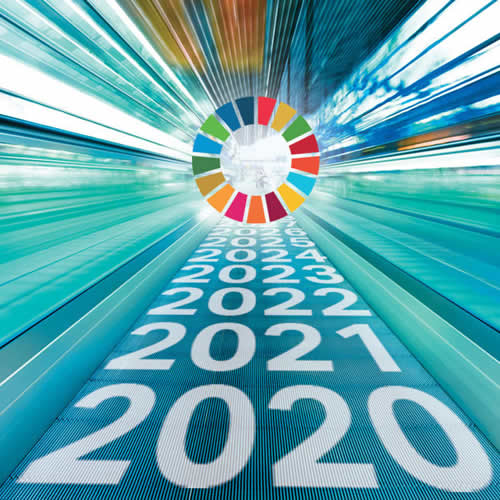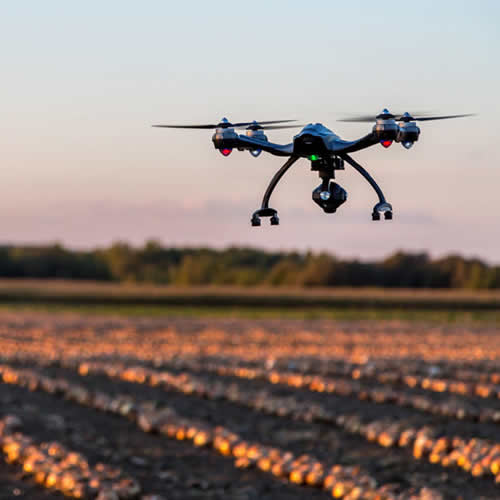A post-Davos forethought: getting sustainability done
In this Insider Perspective, WBCSD President and CEO Peter Bakker reflects on the World Economic Forum Annual Meeting in Davos last week. The theme – “Stakeholders for a Cohesive and Sustainable World” – gave a clear sign that sustainability has now made it firmly to the center of the debates among world leaders. This was a fitting backdrop for WBCSD, which recognizes its 25th anniversary in 2020. Read more about the sessions we hosted and the global discussions that took place in Davos.
The triangle that will fix capitalism
Ahead of Davos, and following the release of Edelman’s latest Trust Barometer, Peter Bakker shared his insights on the need to redirect capitalism. Read why Science-Based Targets (SBTs), the Taskforce on Climate-related Financial Disclosures (TCFD) and Environmental, Social and Governance (ESG) information form the “Triangle of Stakeholder Capitalism” that will help us accelerate the transition to a sustainable world.
The future is determined by what we do now
In this article published in Ethical Corporation, WBCSD Managing Director Filippo Veglio explains why Vision 2050 is being refreshed now, 10 years after its launch, to help deliver the transformational change we need over the next decade.
Entering the decade of delivery: 10 top tips for companies
To mark the beginning of the “Decade of Delivery” on the Sustainable Development Goals, WBCSD has drawn up an insight piece on SDG prioritization for business, with 10 top tips for companies as they work to identify their opportunities to drive and deliver meaningful SDG impact and progress.
A new tool to help companies to assess their progress on circularity
WBCSD has launched the Circular Transition Indicators (CTI) framework and the accompanying free online tool. The CTI is a comprehensive framework that complements a company’s existing sustainability efforts and it is applicable to all companies, regardless of their industry, value chain position or geography. It enables companies to take ownership of their circular transition and perform their self-assessment based on their own scope and priorities, in full confidentiality.
Decarbonizing the automotive sector: the Circular Cars Initiative
The Circular Cars initiative aims to completely decarbonize the automotive sector, with a primary goal to increase the recyclability of cars, their parts and components. It was launched in Davos by WBCSD, in partnership with the World Economic Forum, the European Institute of Technology’s Climate-KIC, SYSTEMIQ, and a diverse coalition of government, industry and other partners.
Releasing foundational data-sharing principles for mobility
In an increasingly connected world, how should we share data to support the transformation of mobility? In this new report, WBCSD identifies five emerging principles for data-sharing.
How dynamic risk assessments can help create long-term value
A new report shows how a dynamic risk assessment can improve companies’ risk practices and identify crucial aspects to continue creating long-term value. It gives insights into how applying different prioritization criteria can support and improve understanding and management of ESG-related risks.
Do you want to strength your board decision-making and oversight? This new report, produced in partnership with Deloitte and Baker McKenzie, dives into the challenges for corporate directors today, showcasing best practice and recommendations. Check out how your board can modernize governance practices and processes to ensure business resilience.
Podcast: the changing landscape of business and human rights
Listen to this podcast from member company Stora Enso, exploring how companies and their stakeholders can have a meaningful and long-term conversation on some of the biggest topics in human rights. You will hear insights from Kitrhona Cerri, Director of Social Impact at WBCSD, Elena Espinoza, Manager of Social Issues at PRI, and Ylva Stiller, Director of Human Rights at Stora Enso.
A protein revolution from fork to farm
WBCSD launched two papers in Davos at the WEF Annual Meeting in January 2020: ‘Protein Pathways: Accelerating sustainable transformation through business innovation’ and ‘Plant Proteins: a key lever to accelerate food system transformation’. These two papers demonstrate the need for a protein revolution and propose concrete actions to transform agriculture and shift diets in relation to animal- and plant-based protein.
Underpinning food system transformation
Read up on how WBCSD will approach food system transformation in 2020, by bringing together impact valuation and enterprise risk management.
 Cs
Cs











